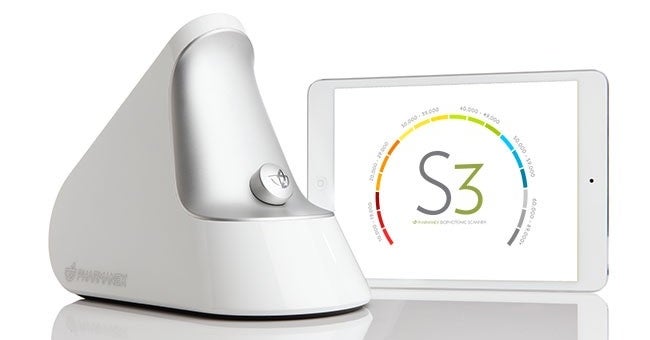Are Social Norms Affecting Your Skin?
June 25, 2018

Social Norms Messaging
Have you ever wondered if your behavior is influenced by social norms, or in other words, by your perception of what is socially acceptable behavior? There is a growing area of research demonstrating that social norms messaging can influence behavior. This concept of social norms messaging is about giving informal knowledge about patterns of behavior that occur within a group or society. This information is then associated with changes in behavior of individuals and can be used to benefit areas like health and wellness.
A good example of this principle is seen when promoting greater consumption of fruits and vegetables. when college students were informed that their peers consume an average of three or more servings of vegetables per day, the recipient of the message typically increased vegetable consumption (Robinson et al., 2014). This study is just one example of our desire to conform to what is socially normal—even if our perception is not reality.
Take a moment and think about the last time someone asked you how many fruits and vegetables you eat per day or how often you exercise. Do you respond with the true amount or do you say something isn’t entirely true but you do it to fee accepted or perhaps to impress the other person? For whatever reason, this innate desire to conform to what is socially normal is common in many people. can be good or bad, depending on the behavior itself.
Biophotonic Scanner

The Pharmanex BioPhotonic Scanner was used to objectively measure the skin carotenoid levels in a published study evaluating social norms messaging (Wengreen et al., 2017). The BioPhotonic Scanner provides a measurement of skin carotenoids which has been shown to correlate with serum levels of carotenoids (Zidichouski et al., 2007) and as a biomarker of fruits and vegetables (Stavens et al., 2006; Aguilar et al., 2014). Over the years, Pharmanex has collected data from millions of scans about scanner scores and how they correlate to supplementation, diet, and lifestyle patterns. This information can potentially empower individuals to make improvements to their diet and lifestyle, and help them make informed decisions on which supplements can impact their antioxidant status.
Study Methods
For the study conducted by Wengreen et al., (2017), the researchers studied the potential effect that social norms messaging related to skin carotenoid scores can have on college students over the course of eight weeks. A total of 185 college students completed the study. All students had skin carotenoid scores measured by the Scanner at baseline and at the end of the study. All students were informed about the validity of skin carotenoids as a biomarker of fruit and vegetable intake and that eating more fruits and vegetables that are red, orange, yellow, green, or purple would help increase their skin carotenoid scores.
Students were randomly assigned to one of three groups and were not told which group they were in. Each group received different information after the skin carotenoid assessment. One group of students was provided accurate information about their skin carotenoid score compared to the distribution of scores for their peers. The second group was told that their carotenoid levels were below the norm for their peer group, regardless of their true carotenoid levels. The third group was a control group that was not given information about how their skin carotenoid score compared to their peer group.

Study Results
Self-reported fruit and vegetable intake (excluding potatoes and controlling for body mass index) was positively correlated with skin carotenoid concentrations at baseline (r = 0.448, p < 0.001) and at the end of the study (r = 0.439, p < 0.001). Regarding scanner score changes, the students in the group that w told their scan score was lower than their peers (regardless of their true scan score) saw a significant increase in their scanner scores (~3000 point increase). The other two groups did not see a significant increase in their scanner scores. The finding suggests that social norms messaging can influence behavior related to skin carotenoid scores. These findings support further exploration of social norms messaging as a technique for producing long-term behavior changes.
References:
E. Robinson, A. Fleming, S. Higgs Prompting healthier eating: Testing the use of health and social norm based messages. Health Psychology, 33 (9) (2014), pp. 1057-1064.
Wengreen HJ; Nix E; Madden GJ. The effect of social norms messaging regarding skin carotenoid concentrations among college students. Appetite. 2017; 116:39-44 (ISSN: 1095-8304).
Zidichouski JA, Mastaloudis A, Poole SJ, Reading JC, Smidt CR. Clinical validation of a noninvasive, Raman spectroscopic method to assess carotenoid nutritional status in humans. J Am Coll Nutr. 2009 Dec;28(6):687-93.
Stavens S, Carlson J, Holubkav R, Zidichouski J, Mastaloudis A, Smidt CR. and Askew, E. Associations of Fruit and Vegetable Intake with Serum Carotenoids and Skin Carotenoids Measured with Raman Spectroscopy (RS). FASEB Journal 20: A669.4;2006.
Aguilar SS, Wengreen HJ, Lefevre M, Madden GJ, Gast J. Skin carotenoids: a biomarker of fruit and vegetable intake in children. J Acad Nutr Diet. 2014 Aug;114(8):1174-80. doi: 10.1016/j.jand.2014.04.026. Epub 2014 Jun 18.
YOU MIGHT ALSO LIKE:
-
In May 2018, our Nu Skin family returned to Malawi to witness the efforts of our Force for Good (FFG) Foundation projects and Nourish the Children (NTC) initiative. As we work to combat the devastating effects of malnutrition and overturn generational poverty, we also want to highlight the social ties that make the world a smaller place. Following, is a brief recap of the group’s daily activities ...
-
One of the key differentiators that sets Pharmanex apart from the competition is Nu Skin’s 6S Quality Process. First created in 1996, the 6S Quality Process embodies the set of standards that Nu Skin applies to our development and manufacturing processes to ensure our products are of the highest quality. Below, we will briefly go through the first three of the six S’s that comprise the 6S Quality ...

